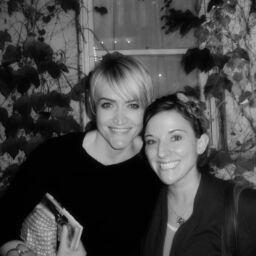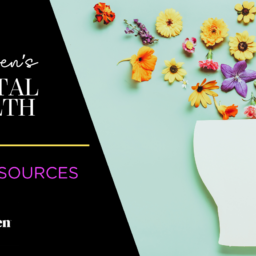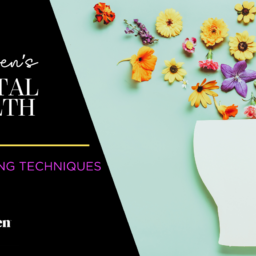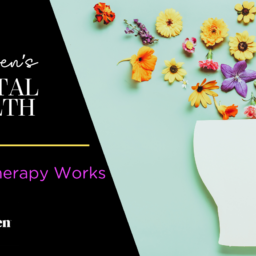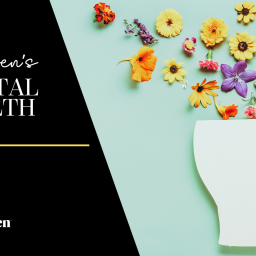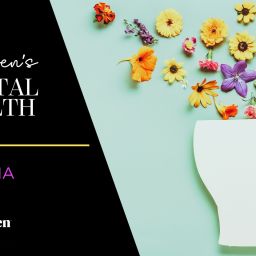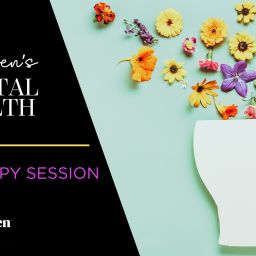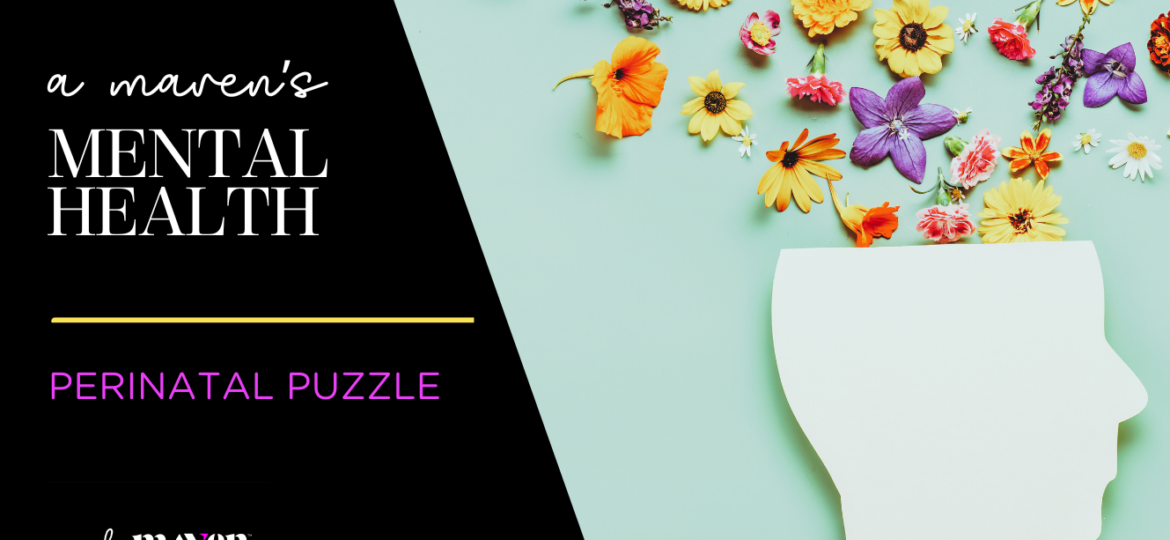
 Welcome to Indy Maven’s Mental Health column coming by way of Adair McDonald, LMHC (she/her/hers). Check out her website for information about how Adair works with clients, and to contact her directly to book a session.
Welcome to Indy Maven’s Mental Health column coming by way of Adair McDonald, LMHC (she/her/hers). Check out her website for information about how Adair works with clients, and to contact her directly to book a session.
Perinatal mental health has a branding problem. The good news is that finally, we live in a time when most of us have heard about postpartum depression and even know some signs of it to look out for in ourselves or others. But too few people realize the wide variety of issues that can come up during and around the childbearing year. When a person in this life stage is struggling but not primarily depressed, they may feel confused or even scared to reach out for help. And whether or not a person meets the criteria for a mental illness diagnosis, the thoughts, feelings and experiences that arise around the time of having a baby will rock most people to their very core, causing them to question much of what they thought they knew to be true.
I’ll never forget my own experience with this. I was in the office of my son’s pediatrician, probably around his 3-month appointment. I’d had to fill out a form in the waiting room, which I now know as the Edinburgh postnatal depression scale. Later, my son’s sweet and kind doctor asked me “So how are YOU doing?” Taken aback, I believe I said something about how fast the time was flying by. She said, “It wasn’t like that for me” and I said, “You know what they say, the years are short but the days are long”. She smiled and seemed to be searching for the right words before saying, “You’re scoring pretty high for postpartum depression.” I was floored. I had never felt more alive, grateful and devoted to any human than this tiny boy in my arms. My life had more meaning than any other time in my life. But. I did feel like things were much harder than ever before, and I did think I was possibly failing my son and my husband in small ways all day every day. Neither the pediatrician nor I understood that you can feel happy and scared at the same time, and that is called postpartum anxiety, not depression.
 POSTPARTUM ANXIETY
POSTPARTUM ANXIETY
For me and so many others, the excessive worry came on hard during pregnancy and even before, when trying to conceive or deciding whether to have a child in the first place. The realities of parenting in a world with so much uncertainty about the future, and the fact that children change your life forever with no take backs, can be the most stressful endeavor a person has ever taken on. Yet you’re “supposed” to be happy. It can feel hard to find people who understand that fear can be present much more than excitement about a baby, especially when the baby seems like such a foreign concept compared to the life one already knows.
POSTPARTUM PSYCHOSIS
And that’s just my story. I now know stories of moms who thought they could take on the world one day and the next day needed to be hospitalized for dangerous, odd behaviors. That’s called postpartum psychosis, a disorder that affects around 1 or 2 out of 1000 mothers and is usually (but not always) the result of underlying bipolar disorder and lack of sleep. 50% of women who have bipolar get their diagnosis in the postpartum, and usually it doesn’t start with sadness or depression, it starts with that feeling of euphoria that evolves into mania and sometimes psychosis.
INTRUSIVE THOUGHTS
Psychosis is different from being tortured by disturbing images. Some moms can’t stop the vivid movies in their heads of throwing their baby down the stairs or even molesting them. Those are called intrusive thoughts and may be associated with peripartum OCD if coupled with nearly uncontrollable compulsions to avoid harm. But many of these women stay silent because they feel ashamed of the images and afraid that others may think they’d act on them.
ADHD
Frequently, women have come to me with the realization that they have ADHD that has gone unnamed their entire lives. They report the added pressures of motherhood overwhelmed them, and they could no longer deny what had always been there. ADHD (Attention Deficit/Hyperactivity Disorder) is chronically misunderstood and often looks different in girls and women than it does in little boys, which is why there is such a deficit in catching it. For most people who have it, it means having trouble prioritizing necessary tasks and feelings of shame for not being able to do what seems simple to others. Add a baby who must be prioritized, sprinkle in ideas about what a good mom looks like, and we have a recipe for disaster
GRIEF
 It isn’t just people who have live babies that face perinatal mental health challenges. In addition to the grief that may (or may not) be experienced with loss, there is the fact that the body and mind don’t necessarily differentiate between someone giving birth to a live baby or someone who has had a stillbirth, miscarriage or abortion. After the loss, a person can feel waves of emotions such as guilt, relief, shame, despair and desperation, while also noticing seemingly bizarre experiences such as increased sex drive, gallows humor or angry outbursts. When a person has a live baby they are caring for, she regulates much of her life around the baby and her hormones follow suit. But when there is a pregnancy and no baby, the body and mind can feel lost and confused with wildly fluctuating feelings smacking her in the psyche one after another.
It isn’t just people who have live babies that face perinatal mental health challenges. In addition to the grief that may (or may not) be experienced with loss, there is the fact that the body and mind don’t necessarily differentiate between someone giving birth to a live baby or someone who has had a stillbirth, miscarriage or abortion. After the loss, a person can feel waves of emotions such as guilt, relief, shame, despair and desperation, while also noticing seemingly bizarre experiences such as increased sex drive, gallows humor or angry outbursts. When a person has a live baby they are caring for, she regulates much of her life around the baby and her hormones follow suit. But when there is a pregnancy and no baby, the body and mind can feel lost and confused with wildly fluctuating feelings smacking her in the psyche one after another.
PTSD
The birth itself often causes lasting suffering. Approximately 17% of birthing people have birth related PTSD in the postpartum. That is a huge number, much of it is preventable, and the risk is disproportionately high in parents of color. In order to diagnose PTSD, a “stressor” must have occurred that causes lasting symptoms. Stressors include having been exposed to death or the threat death, serious injury or the threat of serious injury, or sexual violence or the threat of sexual violence. The stressor can be to a person directly or the person can experience it vicariously as a birth partner or care provider. Many more than 17% of births in the US meet this criteria, but this estimated 17% are the ones who also have lasting symptoms such as hypervigilance and avoidance and who may feel haunted by the event for more than a month past the birth, sometimes for the rest of their lives without adequate treatment and support.
A PARTNER’S MENTAL HEALTH
You don’t need to have been pregnant to experience postpartum mental health challenges. Around 10% of dads experience perinatal mood and anxiety disorders. This is likely about as true for same sex partners, but the research has mostly been done with cis-hetero couples. It is incredibly lonely and scary when the partner is suffering, too. First, there is pressure on the partners to be the “strong” one, and the fact that a major risk factor for this is when the mom also has a PMAD. It’s very hard to admit you need help when you are the one being asked to step up to the plate and support someone who is suffering.
ADOPTION
Families who adopt aren’t by any means immune to perinatal mental health challenges. In fact, they may feel even more isolated if none of their friends or family understand the complexities of adoption or more ashamed to admit they are struggling when they also feel so lucky and grateful to have finally become parents. If it is a transracial adoption, there can also be a major shift in worldview and responsibility to help the child navigate her way through a culture plagued with racism.
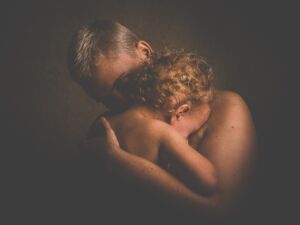 MATRESCENSE
MATRESCENSE
Life after birth is rarely a graceful transition. Similar to adolescence, when we are awkward and searching for ways to claim our identity, we have our “matrescense” when we have a child plopped right into the middle of our identity, and we’re scrambling to figure out how it will all fit together. But unlike adolescence when we’re (hopefully) surrounded by peers going through the same thing, modern mothers may be very isolated in their experiences, feeling like no one can relate to the soul shock of being in charge of another human while not knowing who they themselves are becoming in the process.
I remember being on a trip away from my son when he was around 14 months old. He was in good hands with my husband at home. I felt zero guilt leaving him. In fact, I felt utterly gleeful being away, spending time in real clothes that weren’t yoga pants and having wine and oysters with one of my dearest friends. Preparing for that getaway felt like coming back to myself, but at some point towards the end of the trip I realized “myself” was actually who I’d be returning home to. I had become a mother who was also a friend, wife, student, daughter, sister and so much more. I didn’t have it all managed tidily, but I was happy with the life I’d been growing into, and I was relieved.
When I was going through my matrescense 11 years ago, I didn’t know that word. That’s okay, because the absence of knowledge created a near obsession with learning and then sharing what I wished I had known. I became a childbirth teacher and eventually a therapist, which has allowed me to share some of this with hundreds of parents now and as many friends and family who want to listen! I’ve learned that it isn’t just about telling all the people the answers so they won’t have to suffer, it’s about arming them with the tools to find the empowerment, communication skills, self care and support they need throughout their perinatal journeys and beyond. The work isn’t just about treating symptoms, it’s about fostering an environment within and outside the person that promotes the integration of this evolution into a new life. The only things certain in life are birth and death. When we birth a child, aspects of our former lives die. We need the space to grieve those losses while also opening up and learning to trust that we can and will learn to thrive in the new lives we’ve birthed.
*A word about gender: I always try to do a mix of gender neutral language (parent, they/their) and feminine language (mother, she/her or dad he/him) when discussing perinatal topics.
Adair McDonald, LMHC (she/her/hers) can help with healing trauma, anxiety and panic, pregnancy and postpartum emotions, relationships, adult ADHD, and getting unstuck, among other things. You can book a session with her directly at adairmcdonald.com. Disclaimer: Adair is not a prescriber and this isn’t medical advice.
All of our content—including this article—is completely free. However, we’d love if you would please consider supporting our journalism with an Indy Maven membership.










